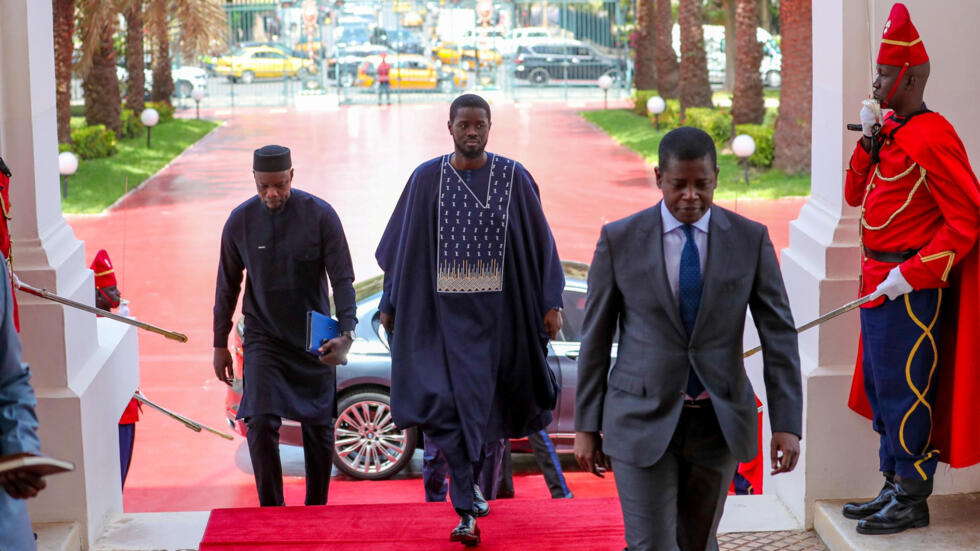A wind of youthful energy is sweeping across West African politics. From Burkina Faso’s Captain Ibrahim Traore to Senegal’s Bassirou Diomaye, young leaders are taking the reins, bringing fresh perspectives and a renewed sense of purpose to the continent. This shift in leadership marks a significant departure from the past, and its impact is undeniable.
The rise of the youth to power signifies a growing recognition of the need for fresh perspectives and a renewed sense of purpose in shaping the future of Africa.
For decades, the narrative around African leadership has been one of experience, often synonymous with longevity in power. With a tide of change washing over the continent, especially in West Africa, and a surge of young leaders emerging and disrupting the status quo, the question is, will other parts of Africa follow suit? This rise of youthful leadership undoubtedly presents a unique opportunity for Africa to break free from past limitations and embrace a brighter future.
Read related: West African Political Crisis: What Does Our Silence Mean for the Average Nigerien?
East Africa, for example, presents a different picture. While some countries boast young leaders in pockets, the broader political landscape remains largely dominated by seasoned figures. For example, Kenya, Uganda, and Tanzania haven’t witnessed a significant shift towards younger leadership. This creates a crucial question: wouldn’t East Africa benefit from emulating the West African example?
The answer is a resounding yes. Young leaders are often more in touch with the aspirations and challenges faced by a growing youth bulge. They understand the urgency of tackling climate change, technological adaptation, and economic opportunities for a tech-savvy generation.
Their energy and innovative spirit can breathe new life into stagnant political systems. These leaders often embody a shift towards transparency and accountability. Having grown up in an era of increased global awareness, they are less likely to tolerate corruption and more likely to embrace democratic principles.
With East Africa boasting a youthful population and the demography growing in size and political awareness, it is envisaged that in the coming years, they will demand greater representation, potentially pushing for younger presidential candidates. The current trend of youthful ministers in some countries, such as Rwanda, with the likes of Dr Uwacu and Uwamariya steering the Education and Gender dockets, respectively, could pave the way for younger presidential candidates.
Visible positive impacts from youthful leadership could challenge the perception of needing extensive experience. If coupled with a shift away from the dominance of long-standing political parties or figures, there remains an opportunity for younger candidates to emerge and gain traction.
Also, read Africa, Putin and the Ghosts of Colonialism.
However, youthful leadership isn’t a magic bullet. Established political figures often have access to greater financial resources for campaigning, which can disadvantage younger challengers. Age-related patterns of electoral success demonstrate a nexus between personal financial resources and campaign funding priorities.
Entrenched party structures also favour established figures, making it difficult for younger candidates to rise through the ranks. The African cultural preference for experience continues to hold weight as some would rather vote for those they consider well-experienced and endowed with wisdom. For East Africa to transcend these cultural obstacles, it is important to consider that a healthy blend of youthful energy and seasoned guidance can be a potent force for positive change.
Undoubtedly, the winds of change are already blowing across Africa. East Africa can choose to either weather this storm or harness its power. By embracing young leadership, Kenya, Tanzania, and Uganda, among other states, can unlock their full potential and build a brighter future for their youthful populations.


The biggest question is not if East Africa will choose to weather the storm or harness its power, but how their choices will serve them on the global platforms.
I am personally interested in seeing/ witnessing what West Africa is going to do with its “good fortune”. Will they seek to truly break free of the old colonial ties that have bound Africa and are chocking the continent?
Are we going to see a renegotiation on old treaties that were established during independence but no longer serve the citizens today?
Omwami yetsomimbwe!